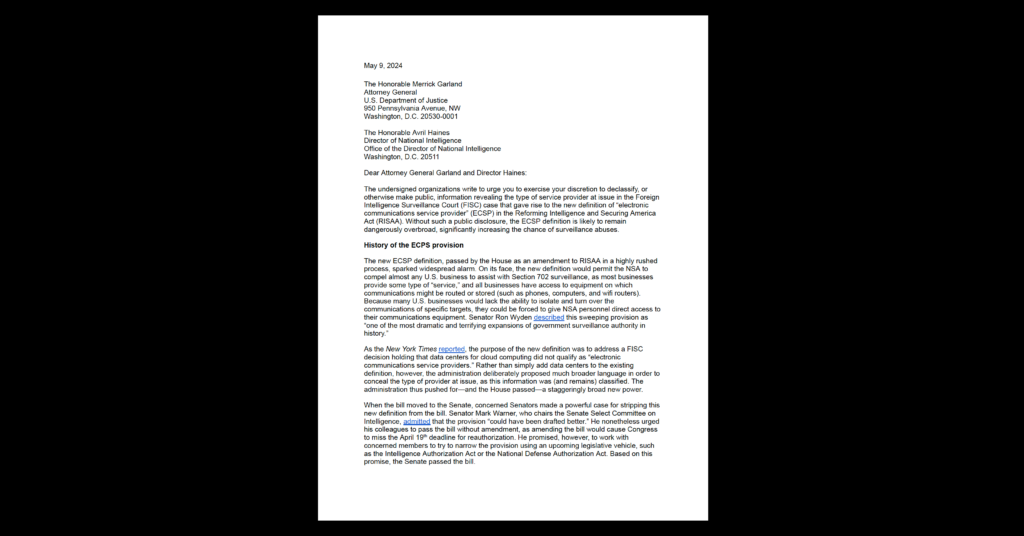Cybersecurity Report Shows Commitment To Privacy, Collaborative Policy Framework
Washington–The Center for Democracy & Technology welcomes the deliberate and reasoned recommendations laid out in the Administration’s cybersecurity report released today. It is evident that the report’s authors listened to the concerns of privacy and civil liberties groups; those concerns are reflected throughout the report’s recommendations.
“It’s clear that the White House review team was committed to building privacy into these cybersecurity policy recommendations from the beginning of the process,” said CDT President and CEO Leslie Harris. “Further, we are greatly encouraged by the Administration’s strong commitment to develop its cybersecurity privacy policies in a collaborative manner with those in the private sector.”
CDT is also encouraged because the report choose not to have the National Security Agency shoulder the primary responsibility for cybersecurity policy. Instead, a cybersecurity official based in the White House will coordinate official policy in close cooperation with the National Economic Council and the National Security Council.
“This dual reporting system seems intended to ensure that the official will be equally sensitive to impact of cybersecurity measures on both security and the economic interests,” Harris said. “That includes technology innovation, competition, and the need to protect proprietary information.”
Although the report opens with the troubling assertion that a loose and lightly regulated critical infrastructure based on the Internet poses a great threat to the nation, to private enterprise, and to individual rights, its recommendations by contrast seem to recognize that a lightly regulated Internet has been essential to innovation, freedom, and openness. The report gives the government enough flexibility to carry out its recommendations without resorting to the blunt instrument of heavy-handed regulation; however, there is a myriad of policy decisions yet to come and each deserves a watchful eye.
“The challenge for the Administration is not how to ‘fix’ a lightly regulated Internet, but how to insert security into it without compromising its core attributes,” Harris said.
From the beginning, the report was done in an open and transparent manner; however, CDT remains concerned that there isn’t a lot of guidance on how to cultivate such transparency going forward. “Whether the cybersecurity program is a success in the long run is going to depend in part on whether cybersecurity officials make transparency a priority,” Harris said. “We would like to see a pledge from the White House cybersecurity official that the open process that lead to the report will continue through policymaking and implementation.”
Lastly, CDT believes that Internet users should be brought into the process as part of the solution. “This President knows better than any before him how to organize and motivate Internet users. We urge the Administration to leverage the Internet as a communication tool to engage the public on how they can best be a responsible part of the overall solution,” Harris said.


